Alles was Sie brauchen, auf einen Blick
Unsere Erkenntnisse sind detailliert und gut recherchiert. Sie behalten den Überblick darüber, was auf dem Markt passiert, und ermöglichen es Ihnen, der Konkurrenz immer einen Schritt voraus zu sein.
Sign up to our newsletter to get exclusive insights and never miss an article.

Embarking on a freelancing journey is an exciting leap into the world of independence and entrepreneurship, but some aspects of the transition can be confusing for newcomers. Here, we answer the most common freelancer FAQs, providing valuable insights on how to establish a limited (ltd) company, identify reliable sources of professional insurance, and choose the best business bank accounts for your consultancy venture.
How do I set up a ltd company?
This seems a daunting requirement at first glance, but by following these simple steps you can have your ltd company set up quickly and efficiently:
- Choose a name: Make sure it's unique and relevant to your services. Check its availability (here if in the UK) before committing.
- Register your business: You’ll need to provide the relevant authorities (such as Companies House in the UK) with details about company directors, shareholders, and a registered office address.
- Consider legal and tax implications: Consult legal and tax professionals to ensure you're aware of the legalities of your business structure. A ltd company offers limited liability protection and potential tax advantages.
How should I insure my business?
Insuring yourself as a freelancer offers protection against legal claims and financial liabilities. As a rule of thumb, this is a crucial safeguard to implement when setting up your freelance business.
Conduct thorough research to ensure you select a reputable provider, with coverage tailored to your industry and services and with indemnity insurance included. Consider other specialist cover you may need, such as general liability insurance, cyber liability insurance, or worker's compensation insurance.
Click here to view all freelance projects on Movemeon!
How do I choose a business bank account?
Research dedicated business banking accounts thoroughly. You may want to use a “traditional” bank for your business, but for a faster, digital-first process, consider using a “challenger” bank such as Monzo, Tide or Starling.
Ideally, your bank will:
- Charge minimal fees and have low minimum balance requirements
- Offer user-friendly online banking services
- Integrate effectively with popular accounting software.
How do I develop professionally?
As a freelancer, you can no longer rely on your employer for training and professional development. Remember to invest in enhancing your skills and staying up-to-date with industry trends. This adds value to your services and helps you stand out in a competitive market.
How can I find more business?
Ensure you network constantly to find new potential clients. Networking can lead to collaborations, referrals, and growth opportunities. Connect with fellow freelancers, industry professionals, and attend conferences — try to tie networking and business development in with professional development by learning about the emerging trends in your field.
Becoming a freelancer offers the freedom to shape your career on your terms. Setting up a ltd company, securing professional insurance, and choosing the right business checking account are the first steps towards a potentially fulfilling career path.
To connect with employers seeking to hire freelancers, speak to Movemeon today.
Would you like to hire a freelancer for your team or want to know more about it? Get in touch with one of our in-house experts!
[hubspot portal="25392842" id="24161966-77f0-499d-9230-0f71cee62bf7" type="form"]

Following the Great Resignation, employers face an increasingly difficult task in attracting the right candidates to their organisation. Most recruitment channels, especially LinkedIn, are saturated, and the traditional recruitment agency experience is a negative one for candidates.
However, employers can improve their own prospects through the use of recruitment platforms. These are an increasingly popular avenue for jobseekers to find work, and offer various benefits to the employers using them including reduced time-to-hire and lower costs.
Talented people are in demand
According to a survey of over 90,000 jobseekers conducted by BCG, 80% of people working in business management and 78% of those working in financial services are approached about new jobs at least several times per year. 72% of each group felt that they, rather than their potential employers, were in the driving seat when it came to salary negotiation.
Top talents will have many options, and they know it. Negative hiring experiences are a major turnoff in a highly competitive labour market; it isn’t just about making the best financial offer. 52% of respondents to BCG’s survey said that a strong negative experience during the selection process would put them off accepting an otherwise good offer, higher than any other factor.
Candidate experience is everything. Interview processes are two-way streets, and in-demand workers are assessing their prospective employer as much as the other way around. Employers need to take an end-to-end approach to their hiring processes, ensuring that it is seamless and intuitive from the start to set the best impression. Recruitment platforms are one of the best places to start.
Platforms can improve hiring outcomes
More than half of the respondents said that they would use a recruitment platform, such as Movemeon, if they were looking for a new position. Further, when asked how they came by their current position, platforms had the highest response rate, at 29%. Recruitment platforms are a popular and effective means of scaling recruitment efforts.
Choosing the right platform is therefore key to building an efficient hiring process, and it can bring various benefits:
Reduce time-to-hire.
CIPD data shows that over half of companies using technology in their recruitment process found that it enabled them to screen out unsuitable applicants to some or a great extent.
Improve candidate experience. The same CIPD report shows that 78% of companies reported an improvement in candidate experience as a result of using recruitment technology.
Reduced costs.
Cost-per-hire is typically lower through recruitment platforms than through agencies, largely because much of the work an agency performs is automated by a recruitment platform. Further, with more efficient resourcing tools, in-house recruitment teams can do more with less, making them smaller and leaner.
Facilitate cleaner data management.
Recruitment platforms tend to automatically log key hiring process data, especially when integrated with an ATS. This means cleaner, more thorough and less time-consuming data management, with analytics functions often included too.
For example, a multinational consumer-goods company cited by McKinsey found that adopting digital hiring tools delivered $1m hiring cost savings per annum (across approximately 800 hires, meaning a saving-per-hire of $1,250) as well as a 90% reduction in cost-per-hire
Movemeon, for example, offers various key advantages to candidates and employers. Rather than face the hassle of fielding cold calls from recruiters, candidates can receive notifications whenever they match with a company on the platform. This creates a better and more positive candidate experience, increasing the chances of a positive hiring outcome.
Likewise, hiring companies can strip out the time and effort needed to process irrelevant applications. No recruiters forwarding disinterested or underqualified candidates; matching candidates on Movemeon ensures that every connection is made with engaged, highly talented applicants.
Above all, candidates on Movemeon are a specialised community of current- and former consultants, each of whom trusts Movemeon as a partner to match them with roles highly suited to their backgrounds. As such, employers can find candidates through the platform that simply aren’t looking in other places, or via agencies.
Find out how Movemeon can improve your hiring through our innovative platform and global network of consultants. Get in touch with on of our experts!
[hubspot portal="25392842" id="24161966-77f0-499d-9230-0f71cee62bf7" type="form"]

Wege aus dem Consulting: In dieser Artikelreihe beschäftigen wir uns mit den verschiedensten Exit-Methoden aus der Beratung. Nach drei Jahren Consulting bei McKinsey gründet Florian mit zwei weiteren McKinsey-Beratern das Start-up Thinksurance, das mittlerweile führende B2B-InsurTech mit Fokus auf Gewerbeversicherungen in Deutschland. 2020 wurde er von CEO Today mit dem CEO Award Europe ausgezeichnet. Damit zählt er zu den besten CEOs Europas! Im Interview erzählt er uns von seinem persönlichen Weg aus dem Consulting und wie ihm dieser Background bei der Start-up-Gründung geholfen hat.
Wie ist es zur Gründung von Thinksurance gekommen?
Da stecken zwei Fragen drin – die nach der Gründung eines Start-ups und die nach Thinksurance. Ich bin schon während meiner Zeit bei McKinsey mit Start-ups in Berührung gekommen. Als ich dann 2015 freigestellt wurde, um an meiner Doktorarbeit zu arbeiten, habe ich den Austausch mit vielen Start-up-Gründerinnen und -Gründern intensiviert. Das Thema InsurTech war zu dieser Zeit gerade in aller Munde. Allerdings muss ich gestehen: Ich hatte dieses Thema damals noch nicht auf dem Schirm, weil ich wenig Kontakt mit der Versicherungsbranche hatte. Das hat sich aber relativ schnell geändert, als ich mich dann etwas mehr mit der Materie auseinandergesetzt habe. Als ich dann festgestellt habe, dass es kaum ein Produkt gibt, das noch digitaler und datengetriebener ist, begann mein Interesse zu steigen. Naja, und jetzt ist das fast 5 Jahre her und wir haben die Branche ganz schön aufgemischt!
Wann hast du gemerkt, dass der Schritt Richtung Gründung der Richtige ist?
Das habe ich eigentlich relativ schnell gewusst, nachdem ich operativ auch wirklich gestartet bin. Du weißt es vorher nicht, sondern es ist einfach ein Gefühl. Man spricht immer vom „Job-Person-Fit“ – der war einfach nochmal viel größer für mich als in der Beratung. In einem Start-up hast du die Chance, schnell ein eigenes Team aufzubauen, Mitarbeiter einzustellen, die an deine Mission glauben und selbst etwas aktiv gestalten. Daraus kann ich im Job die Energie, den Schwung und die Erfüllung ziehen, die ich durch das Bauen von Slides – vereinfacht gesprochen – nicht erreichen kann.
Auch auf Movemeon haben wir viele offene Stellen in Start-ups. Du kannst alle Jobs auf Movemeon.com ansehen und dich einfach innerhalb weniger Schritte bewerben.
Ist die Gründung deiner Meinung nach der ideale Exit aus dem Consulting?
Nicht unbedingt. Klar, jeder und jede möchte etwas bewegen. Dazu muss man allerdings nicht zwingend selbst gründen, sondern kann beispielsweise auch den Schritt in ein bestehendes Start-up oder Scale-up wagen. Die bekannten Vorteile von Start-ups, wie etwa flache Hierarchien, ambitionierte Kolleginnen und Kollegen und verschiedenste Events, ermöglichen es dir auch so, etwas selbst zu gestalten und einen echten Unterschied zu machen. Gleichzeitig ist der Sprung in die Unsicherheit nicht ganz so groß, wie wenn ich selbst gründe und von Null anfange. Ich hatte auch viel Glück, aber man vergisst, dass der Großteil aller Startups scheitern.
Welche Dinge, die Du als Consultant gelernt hast, haben Dir bei der Gründung von Thinksurance geholfen?
- Drive: Nicht die beste Idee gewinnt, sondern wer schnell Dinge umsetzen kann. Nur wer schnell und flexibel Dinge entscheidet, bewegt auch etwas.
- Strukturiertes Arbeiten und Selbstmanagement: Das ist unglaublich wichtig, wenn du etwas aufbauen willst, was es noch nicht gibt. Sonst verlierst du dich schnell in den Themen.
- Unternehmerisches Denken und Senior Stakeholder Management: Als Consultant arbeitest du oft mit dem Senior Leadership und dem C-Level zusammen. Dabei lernst du, so zu denken wie sie. Und du weißt auch, wie Du auf dieser Ebene kommunizieren musst. Das hilft besonders bei Gesprächen mit Partnern und Investoren.
Hier findest du weitere Interviews mit Kandidaten, die über ihren Weg nach dem Consulting sprechen.

Wege aus dem Consulting – in dieser Artikelserie beschäftigen wir uns mit den unterschiedlichen Karrieremöglichkeiten, die sich nach der Beratung ergeben können. Nika erzählt uns, wie sie als ehemalige Warwick-Absolventin und frühere Beraterin in ihrem jetzigen Job bei Google so zurechtkommt. Wir unterhielten uns außerdem über ihre Zeit bei Morrisons Online, die Unterschiede zu ihrer Stelle bei Accenture und natürlich über ihre jetzige Tätigkeit bei Google.
Warum hast du dich für den Ausstieg aus dem Consulting entschieden?
Ich war offen für eine neue Herausforderung und wollte mein Fachwissen in der Analyse und Digitalisierung weiter ausbauen. Allerdings wurde die Stellensuche für mich schnell sehr entmutigend, da die große Anzahl an Jobbörsen und der ständige Druck der Personalagenturen meine Suche nicht unbedingt einfacher machten. Ich war mir nicht sicher, welche Unternehmen überhaupt Interesse an der Beschäftigung von ehemaligen Beratern haben und wo ich mit meiner Suche beginnen sollte. Zu dieser Zeit hat mir dann ein Freund aus der Beratung die Nutzung von Movemeon empfohlen.
Movemeon legt seinen Fokus speziell auf die Vermittlung von Jobs, die einen Beratungshintergrund erfordern. Der Vorteil an Movemeon ist, dass du weder zu etwas gedrängt wirst, noch dich mit unpassenden Jobangeboten auseinander setzen musst. Du alleine kannst die Richtung deiner Jobsuche vorgeben. So hatte ich die volle Kontrolle über den gesamten Prozess und konnte mich eigenständig auf meine favorisierten Positionen bewerben. Diese Autonomie habe ich sehr genossen und doch konnte ich mir jederzeit sicher sein, dass ich bei Bedarf einen Ansprechpartner von Movemeon erreichen konnte. Meine Bewerbung war wirklich sehr unkompliziert und eine Rückmeldung seitens des Arbeitgebers erfolgte schnell. So kam ich zu meinem ersten Job nach dem Consulting - in das Unternehmen Morrisons Online.
Auf Movemeon findest zahlreiche Rollen in verschieden Branchen und Funktionen. Melde dich an und finde noch heute deinen neuen Job!
Wie war der Wechsel zu Morrisons Online?
Die Arbeit bei Morrisons Online habe ich sehr genossen. Da ich immer offen für neue Erfahrungen bin, fiel es mir nicht schwer sofort einzutauchen. Der Zeitpunkt meines Einstiegs war perfekt, da ich unbedingt im digitalen Bereich arbeiten wollte und das Projekt gerade gestartet hatte. Es fühlte sich wie die Arbeit in einem Start-up an: Die Atmosphäre war wirklich aufregend und die Mentalität des Unternehmens passte einfach zu mir.
Da alles von Grund auf neu konzipiert wurde, mussten wir uns komplett auf unsere Analysen und Modelle verlassen. Außerdem waren wir alle neu in diesem Projekt: Unsere Erfahrungen konnten wir schlichtweg nur durch praktische Umsetzung und Überprüfung unserer Ideen sammeln. Es war sozusagen wie ein Crash-Kurs in Unternehmensneuaufbau. Kreative Lösungen waren gefragt und wir mussten ständig neu dazu lernen. Rückblickend war dieser Schritt die beste Entscheidung für meine Karriere nach der Beratung. Nicht dass das Team nur großartig war, wir sind auch immer noch miteinander befreundet. Weil wir selbst so gute Erfahrungen mit Movemeon gemacht haben, haben wir auch bei der weiteren Zusammenstellung unseren Teams auf Movemeon vertraut.
Falls du nach Mitarbeitern für dein Team suchst, helfen wir dir selbstverständlich ebenfalls gerne weiter. Nimm einfach über das Formular Kontakt auf und wir melden uns umgehend bei dir zurück!
Wo liegen deiner Meinung nach die Unterschiede zwischen der Arbeit im Consulting und der Industrie?
Vor allem als Junior-Consultant arbeitest du in vielen verschiedenen Projekten gleichzeitig. Bei Morrisons war Expertenwissen gefragt und ich musste sehr schnell dazu lernen. Ich bin auch nicht viel gereist, was mir aber persönlich sehr zugesprochen hat. Anstatt am Wochenende meine Wäsche waschen zu müssen, konnte ich die Zeit mit meinen Freunden verbringen. Trotzdem muss ich sagen, dass ein Job im Consulting einfach der beste Schritt nach dem Studium ist. Dort lernst du die Basics, wie Arbeitsethik, Erwartungen gerecht zu werden, Zeitmanagement und den erfolgreichen Umgang mit eigenen Fehlern. Das alles findet in dem gesicherten Umfeld eines großen Beratungsunternehmens statt – die perfekte Umgebung um sich weiterzuentwickeln.
Wie lässt sich die Zeit bei Google mit deinen bisherigen Erfahrungen vergleichen?
Die Arbeit bei Google ist wirklich sehr angenehm. Die Technik funktioniert immer einwandfrei und die
technologische Ausstattung ermöglicht einem den absoluten Fokus auf die eigentliche Arbeit. Da zu jeder Zeit verschiedenste Experten zur Verfügung stehen, kannst du deine Projekte schnell vorantreiben und wirklich etwas erreichen.
Ich helfe den FMCG-Marken ihre digitale Marketingstrategie weiterzuentwickeln, indem ich Analysen vornehme und den Marken Einblicke in bestimmte Themen gewähre. Wir versuchen das Reiseverhalten und Vorgehen von Online-Kunden zu verstehen. Oft bekomme ich nur sehr vage Problemstellungen und Anweisungen vorgelegt. Deswegen versuche ich das Thema erst einmal zu durchdringen, um dann einen erfolgsversprechenden Lösungsansatz präsentieren zu können. Natürlich stellt das eine große Herausforderung dar, die ich aber gerne annehme. Mein unmittelbares Team setzt sich aus sieben Leuten zusammen und lebt flache Hierarchien. Google´s Philosophie vom Scheitern und Lernen mag ich wirklich sehr, weil die Innovation an oberster Stelle steht. Wenn es etwas nicht funktioniert, wird sofort nach der nächsten Lösung für das Problem gesucht.
Hast du Tipps für Leute, die aus der Beratung wechseln wollen?
- Augen auf bei der Wahl deines Managers. Diese Person sollte jemand sein, von dem du lernen möchtest und der auch bereit ist dich weiterzubringen. Du musst dir bewusst sein, was du willst und was du brauchst. Dein Manager sollte dich genau in diesen Bereichen unterstützen können.
- Bleibe gegenüber Neuem stets aufgeschlossen - egal welche Vorurteile du auch haben magst. So lange du noch jung bist, solltest du so viele Dinge wie möglich ausprobieren. Du kannst nie wissen, in welchem Bereich du besonders talentiert bist oder was dir besonders viel Freude bereitet. Bei Accenture habe ich mich im Laufe der Zeit gegen viele Projekte aus dem öffentlichen Sektor gesträubt. Am Ende haben sich diese aber als die lohnendsten und angenehmsten Vorhaben herausgestellt. Ich empfehle auch an so vielen Projekten wie möglich teilzuhaben: Der Workload wird zwar immens sein, doch deine Lernkurve noch viel größer. Wie du deine Möglichkeiten als ehemaliger Berater bestmöglich ausschöpfen kannst, erfährst du hier.
- Wähle die Stellen entsprechend deines Potenzials aus. Man kann immer und jederzeit neu dazulernen. Im Consulting lernt man glücklicherweise, wie man seine Fähigkeiten schnell ausbauen und sich an neue Umgebungen anpassen kann.
- Lerne dazu, indem du dich mit deinen Kollegen/Kolleginnen über deine Ideen und Ansätze austauschst. Ich hake immer wieder ein und versuche ständig unsere Denkweisen miteinander abzugleichen. In den meisten Fällen führt das zu weitaus besseren Ergebnissen.
- Stehe zu deinen Entscheidungen.
Wenn du voll und ganz hinter deinen Entscheidungen stehst, hast du die besten Chancen auf Erfolg und es werden sich neue Möglichkeiten auftun. - Sei dir sicher, dass dir gefällt was du tust. Wenn das so ist, dann sieh das nicht als selbstverständlich an.
Finde jetzt deinen nächsten Job auf Movemeon!
Was hat dir bei den einzelnen Unternehmen am Besten gefallen?
Bei Accenture habe ich die Zusammenarbeit mit meinen Kollegen sehr geschätzt. Wenn du nach London ziehst und deinen ersten Job nach der Universität annimmst, dann hilft dir ein solches Umfeld immens. Wir waren alle gleich alt, machten ähnliche Fehler und versuchten einfach stetig dazuzulernen. Darüber hinaus hatten wir Zugriff auf eine große Menge an Ressourcen und konnten bei Bedarf jederzeit Hilfe anfordern. Morrisons war ein großartiger Business-Crashkurs und perfekt für den Aufbau von Expertenwissen.
Bei Google ging es darum, dieses Fachwissen weiter auszubauen und an einer breiteren Palette von Fragestellungen zu arbeiten. Das Ziel war, die Kunden bei der komplexen Arbeit mit digitalen Konsumenten zu unterstützen und dabei stetig dazuzulernen. Consulting war für am anspruchsvollsten, während ich mir bei Morrisons und Google eher die Hände schmutzig machen musste. Manchmal muss man einfach improvisieren und zur nächsten Angelegenheit übergehen. Obwohl jeder Job seine arbeitsreichen Zeiten hat, lernt man mit der Zeit besonders die Phasen zwischen den Projekten aktiv für die eigene Erholung zu nutzen. Am Ende des Tages ist es deine eigene Aufgabe (und dein Privileg), eine Tätigkeit zu finden, die absolut zu deinen Vorstellungen passt.
Wie kommt man an einen Job bei Google?
Man sollte sich einfach so gut wie möglich vorbereiten und hoffen, dass alles gut geht. Ich hatte fünf Interviews mit sieben verschiedenen Leuten. Sie möchten deine Denkweise verstehen und deine Teamfähigkeit überprüfen. Dabei versucht dich aber niemand mit einer Fangfrage in die Falle zu locken. Mir wurden ausschließlich Fragen zu dem Job, meiner Erfahrung, meinen Führungsqualitäten und Identifikation mit der Unternehmenskultur gestellt. Jeder war wirklich freundlich und aufgeschlossen während dieser Phase.
Auf unserem Blog findest du weitere spannende Interviews mit Kandidaten, die über ihre Karriere nach dem Consulting sprechen.

In a world riddled with uncertainty, certain firms manage not just to survive, but to thrive. Smaller, more agile firms appeal to candidates in an increasingly competitive marketplace: Movemeon’s 2023 application trends show that the top four firms by number of applications received were all boutiques with a clear industry specialism and mission, and collectively received the same total number of applications as the next 16 companies combined.
This tallies with insights from our 2023 freelance report and 2022 index report, which showed that consultants changing firm while staying in advisory tended to want greater impact. Sideways moves, leveraging their existing (strategy) skills, are enabling more mission-driven career changes.
When compared with external data, it is clear that these career choices reflect broader changes taking place in the consulting industry, as advisory firms and their clients adjust to rapidly changing market conditions.
Agile strategy
In uncertain times, it pays to be adaptable. Tough economic times go hand-in-hand with severe downturns for particular industries and sectors, but it is often hard to predict which markets will be affected and which will endure.
Companies that rely heavily on a single market or revenue stream are at risk, and it is harder for large organisations to pivot quickly if their core customer base suddenly cuts spending. Smaller businesses, however, typically have faster iteration times; they are used, by necessity, to constantly monitoring, assessing and pivoting their offerings.
This is why smaller companies are currently proving more popular on Movemeon; candidates are clearly attuned to the advantages of boutique firms in the unpredictability of the currency business cycle.
The need to adapt is also driving hiring behaviours in these firms. Boutique consultancies are increasingly engaging specialists in a variety of niche markets and industries, especially social impact, government and energy consulting.
Contractors are increasingly popular, their flexibility offering much-needed expertise while retaining the ability to cut costs and pivot quickly if necessary. Movemeon’s most successful advisory partners are increasing their use of contractors, as our Advisory Lead, Ethan Cho, mentioned in his most recent newsletter.
Strategic Talent Management
Talented teams drive innovation and navigate change effectively; research from McKinsey Global Institute found that the world’s most successful businesses typically combine investment in talent development with a culture of innovation.
However, gaps exist between supply and demand for certain skills. Companies must therefore be ready to offer training, either to existing staff or to new hires who may lack industry-specific experience but who demonstrate the right transferable skills.
Firms that invest in employee development can see improved talent retention; research from LinkedIn shows that 94% of people will stay at a company longer if it invests in their career development. Similarly, effective in-house training programmes mean these firms can cast the net wider when they do hire, accessing a broader talent pool. This in turn will naturally improve diversity, which improves a business’s ability to adapt and innovate.
Companies offering effective training programmes do well to broadcast them during the hiring process, since candidates, particularly younger ones, are increasingly interested in internal development opportunities when assessing competing job offers.
Movemeon’s in-house experts can advise on the best way to position training programmes in job adverts. Get in touch here!
Are you a candidate and looking for a new opportunity? Log in and view all open jobs on Movemeon!
Global vision
Geographical diversification can limit exposure to localised uncertainty.
While “traditional” markets (especially the US, UK and EU) are undergoing a period of economic uncertainty, other geographies, particularly the Middle East, are thriving. Projects are in abundance, and advisory firms are relocating teams and resources here; the FT reported in February that, even as consultancies looked to cut costs in their home markets , firms like PwC were increasing the number of staff deployed in the region.
Boutique and medium-sized firms are also joining this trend, and allocating resources accordingly. For example, Roland Berger’s annual meeting earlier this year saw a quarter of all its partner appointments made to its Middle East practice, while Renoir Consulting acquired Dubai’s ESG-Integrate last year to boost its presence in the region.
Movemeon’s Advisory Lead, Ethan Cho, has been supporting boutiques and large firms with their Middle East expansion. Feel free to reach out for more information or if you have questions about Movemeon’s candidate base in the Middle East.
[hubspot portal="25392842" id="24161966-77f0-499d-9230-0f71cee62bf7" type="form"]

Notre nouvel article retrace les avantages du travail en freelance.
Les avantages de travailler en freelance
Le travail indépendant offre de nombreux avantages : salaire attractif, variété des projets, renouvellement de clientèle. Cependant, le principal avantage du freelance est ce que certains considèrent comme la chose la plus précieuse au monde : Avoir plus de temps !
De nos jours, la majorité d'entre nous ont le sentiment de vivre dans un rush permanent, avoir plus de temps est le privilège que tout le monde aimerait pouvoir obtenir mais malheureusement personne n'y parvient vraiment.
Si vous abordez les gens dans la rue et vous leur demandez de partager leurs trois souhaits avec vous, vous obtiendrez probablement des réponses comme : « être riche » et « devenir célèbre » mais très peu de gens vous diront qu’ils souhaiteraient avoir plus de temps. Et ce n'est pas parce que nous n'en avons pas tous secrètement envie mais c'est plus parce que nous sommes tous presque arrivés à la conclusion que c'est juste une chose inaccessible dans le monde du travail.
Il est important d'expliquer ce que j'entends vraiment par "plus de temps". Le temps est relatif et dépend de la manière dont nous décidons de l'utiliser. Une heure passée à se rendre au travail ne vaut pas une heure passée à faire quelque chose que vous aimez vraiment. Plus de temps signifie souvent avoir plus de temps à passer avec ses amis et sa famille, voyager, passer du temps dans un parc à lire un bon livre. Bref, tout ce que chacun peut considérer de son point de vue comme du temps passé à faire toutes les petites choses qui font que la vie en vaut la peine. Peut être appelé "le temps d'or".
Trouve ta prochaine mission freelance sur Movemeon!
Comment définir le temps d’or ?
Le « temps d'or », c'est être capable de faire les choses auxquelles vous repensez à la fin de la semaine et qui vous font dire simplement « ça a été une bonne semaine ». Cela peut être aussi simple que de peindre un tableau un mercredi après-midi d'été ou de déposer votre enfant à l'école tous les jours, chacun a sa propre définition de ce que signifie réellement le « temps d'or ».
Certains de mes plus beaux souvenirs dans la vie sont ces occasions qui se sont produites à la suite d'avoir plus de "temps d'or" - garder ma nièce pour la première fois après avoir retiré un "malade" du travail, pris une année sabbatique et voyagé à travers Cuba et l'Amérique centrale au lieu de me lancer directement dans un emploi après l'université – toutes ces choses que je n'aurais pas pu faire sans cette « période dorée ».
Cela ne veut pas dire que je n'aime pas ce que je fais pour le travail, au contraire, je me considère chanceux d’avoir un travail qui me tient vraiment à cœur - mais si vous me demandiez si je pense que j'ai assez de « période dorée » dans ma semaine - je dirais probablement non. Je pense qu'il est juste de dire que je ne suis pas le seul à ressentir cela. La plupart de mes amis qui travaillent ont tous également la même sensation. Le travail est formidable, mais je n'ai pas assez de temps libre pour faire les choses que je veux vraiment.
J'aurai 30 ans le mois prochain et ça me fait réfléchir - comment vais-je me souvenir de mes 20 ans ? Ai-je vraiment fait tout ce que je voulais – sinon, qu'est-ce qui m'en empêchait ?
Clique ici pour retrouver plus d'articles sur le freelance.
Pourquoi le freelancing est de plus en plus choisi comme mode de travail ?
À mon avis, pouvoir récupérer une plus grande partie de ce "temps d'or" est probablement l'un des avantages principaux et souvent les plus sous-évalués du travail en freelance. Cette capacité à gagner un peu plus de "temps d'or" est obtenue en adaptant l'équilibre entre vie professionnelle et vie privée afin que vous puissiez continuer à maintenir votre niveau de vie actuel (payer les factures, l'hypothèque, les frais de scolarité, etc.), mais en libérant du "temps de travail" et le consacrer à toutes les activités qui vous passionnent également. La flexibilité de ne travailler que certains mois de l'année ou que certaines heures sur un projet indépendant attire de plus en plus.
Lorsque vous observez la vie d'un consultant indépendant, vous constatez immédiatement qu’Il n'y a pas une seule catégorie de «travailleurs» qu’on pourrait classer comme étant plus satisfaits de leur vie personnelle et professionnelle car ils ont maîtrisé l'art de se déconnecter lorsqu'ils ne sont pas sur un projet et de garder le «temps d'or» sacré.
La tentation sera toujours de se sentir « productif » et de rechercher de nouveaux canaux pour des projets potentiels lorsque vous ne travaillez pas, mais le fait est que si vous vous êtes bien organisé et que vous avez travaillé dur pour établir un solide réseau d’employeurs potentiels, il y aura des occasions régulières qui se présenteront et qui vont vous permettre de vous déconnecter - un luxe vraiment rare de nos jours.
Quelques aventures et activités que les consultants indépendants ont la chance de faire:
Je terminerai cet article en énumérant certaines des meilleures aventures et activités que les consultants indépendants ont la chance de faire grâce au "temps d'or" que j’ai pu noter après avoir rencontré une centaine de consultants au cours de ces dernières années :
- Entraîner et représenter le pays au Championnat d'Ultimate Frisbee
- Prendre un congé d'été pour ramener les enfants en Chine afin qu'ils puissent réintégrer leurs racines
- Aller d'un océan à l'autre à bord d’une moto Harley Davidson
- Visiter plus de 100 pays
- Baignade dans le chenal et les grands lacs
- Lancer une start-up qui va changer le monde
- Voler à l'autre bout du monde pour voir son groupe préféré jouer son nouvel album
- Finir son travail à 17h tous les jours pour pouvoir s'entraîner pour le marathon avec son fils de 18 ans
- Louer une mustang et faire le road trip
- Aider sa femme après la periode d’accouchement
Le cofondateur de Movemeon, Rich a eu l'occasion d'aborder les avantages et les désavantages du Freelancing avec Mark.
https://www.youtube.com/watch?v=mVR2kNdT-wA&t=3s

Wege aus dem Consulting – in dieser Artikelserie beschäftigen wir uns mit den unterschiedlichen Karrieremöglichkeiten, die sich nach der Beratung ergeben können. Jutta hat ihre berufliche Karriere bei der Boston Consulting Group gestartet und berichtet uns über ihren Weg nach dem Consulting, bis hin zu ihrem Job als Head of Corporate Development bei Westwing.
Wieso hast du dich zu Beginn deiner Karriere für das Consulting entschieden?
Ich bin in einer Familie aus Bankern und Ingenieuren aufgewachsen, in der es eine Menge Vorurteile gegenüber Berater*innen gab. Das Klischee der arroganten Anzugträger, die keinen Mehrwert liefern, war sehr präsent für mich. Deshalb habe ich die Beratung lange nicht als Karriereoption wahrgenommen.
Während meines Studiums hat mich dann einer meiner Professoren liebevoll in ein Consulting-Praktikum „gezwungen“. Er meinte, dass das eine super Erfahrung für mich wäre. Das war damals bei einer Boutique-Beratung in München mit Fokus auf Change Management. Dort habe ich dann festgestellt, dass Du tatsächlich Mehrwert liefern kannst als Berater*in, indem Du die richtigen Fragen stellst und Brücken zwischen Abteilungen schlägst.
Natürlich habe ich auch Praktika in Konzernen gemacht, um einen Vergleich zu bekommen. Diese waren mir jedoch zu bürokratisch und man kam sich nur also eine von vielen vor.
Wie hast du dann den Weg zu BCG gefunden?
Nachdem die Beratung für mich als Berufseinstieg feststand, war ich viel auf Recruiting-Veranstaltungen. Hier war für mich schnell klar – von der Kultur her passe ich nur zu BCG. Deshalb habe ich mich auch ausschließlich dort beworben. Das fanden viele in meinem Umfeld riskant, da die Bewerbungsprozesse bei den Top-Tier-Beratungen sehr anspruchsvoll sind und die Bewerberanzahl hoch. Aber für mich war klar, wenn mich BCG nicht will, dann gehe ich nicht in die Beratung. Und bei BCG war ich letzten Endes auch zehn Jahre lang sehr glücklich.
Was hat dich in deiner Zeit bei BCG am meisten geprägt?
Die ersten Jahre waren sehr stressig mit vielen langen Arbeitstagen. Das hat meinen jetzigen Führungsstil allerdings sehr beeinflusst. Durch die Zusammenarbeit mit unterschiedlichen Manager*innen habe ich mir abgeschaut, wie ich Teams führen will – oder eben nicht führen möchte.
Als Junior-Projektleiterin habe ich zudem mit einem alt-eingesessenen Senior-Partner zusammengearbeitet, der eine besondere Art hatte, neue Projekte beim Kunden zu starten: die ersten drei Wochen wurden weder PowerPoints, noch Excel-Listen erstellt – stattdessen sollten wir mit möglichst vielen Mitarbeitern sprechen, um die Situation im Unternehmen zu verstehen.
Diesen Ansatz habe ich mir bis heute beibehalten – ich blocke meinen Teams Zeit im Kalender, zum „Denken“. Das mag banal klingen, macht aber einen gewaltigen Unterschied.
Wie verlief dein weiterer Karriereweg?
Ich habe lange überlegt, was für mich der beste Weg aus dem Consulting ist. Selbst gründen fand ich zum Beispiel immer sehr spannend. Als Frau mit Familienwunsch fehlte mir da jedoch die nötige Sicherheit.
Letzen Endes habe ich einen sehr klassischen Weg aus dem Consulting gewählt: ich wurde direkt von einem Kunden abgeworben. Die Entscheidung für dieses Unternehmen fiel mit nicht schwer, da mir die langfristige Wertekultur dort sehr gut gefiel. Bereits während meiner Zeit als externe Beraterin konnte ich außerdem sehen, dass sich die Mitarbeiter*innen dort sehr wohl fühlen – viele Mitarbeiter*innen waren bereits jahrelang angestellt. Das war für mich ein wichtiges Kriterium an meinen neuen Arbeitgeber: dass man sich wohlfühlt und Menschen um sich hat, mit denen man gerne zusammenarbeitet.
Während meiner Zeit dort haben wir viele große Projekte vorangetrieben und den Umsatz verdoppelt. Außerdem bekam ich die Gelegenheit, einige Zeit nach Australien zu gehen. Dort kam dann mein Sohn zur Welt.
Nach meiner Zeit in Australien hat sich die Führungsspitze im Unternehmen verändert und die Projekte meiner Abteilung waren abgeschlossen. Deshalb wurde es Zeit, sich etwas Neues zu suchen.
Du bist auch auf der Suche nach einer neuen beruflichen Herausforderung? Schaue dir hier alle Jobs auf Movemeon an!
Wie ging es weiter zu Westwing?
ch kam während der Corona-Zeit zurück nach Deutschland. Corona hat mir noch einmal mehr bewusst gemacht, wie wichtig die Familie ist und dass ich in der Nähe arbeiten möchte. Meine Job-Interviews waren dieses Mal alle remote. Allerdings konnte ich mich mit dem CEO auf einen „Interview-Spaziergang“ im Olympiapark treffen. Das war für mich wichtig, um meine Ansprüche an eine neue Position klar zu kommunizieren und auch, welche Anforderungen ich als Führungskraft habe.
Welche Aufgaben beinhaltet deine Position als Head of Corporate Development?
Die Corporate Development Abteilung wird aktuell von mir aufgebaut. Der Schwerpunkt meines Teams werden cross-funktionale Projekte werden. Themen wie Sustainability, M&A, Entrepreneurship und Governance-Aufgaben werden eine Rolle spielen. Außerdem arbeite ich eng mit CEO und CFO sowie dem Aufsichtsrat und Vorstand an Strategiethemen.
Welche Skills auf dem Consulting helfen dir in deiner aktuellen Rolle?
- Große Datenmengen / Menge an Informationen zu sichten und strukturieren – was ist relevant/nicht relevant?
- Schnelle Entscheidungen zu treffen.
- Strukturiertes Denken: Gerade wichtig bei der Einarbeitung in einen neuen Job – wie gehe ich an Projekte heran?
- Schnelles Einarbeiten in Kontexte: aktuell zum Beispiel in remotes Onboarding von Mitarbeiter*innen
- Selbstbewusstsein: Der Aufbau einer neuen Abteilung bringt Skepsis mit sich – was macht ihr überhaupt? Warum ist das wichtig für das Unternehmen?
- Priorisierung: nicht nur bei Aufgaben im Job, sondern auch, um Familie und Beruf in Einklang zu bringen.
Welche Tipps würdest Du Consultants geben, die aktuell über Ihren ersten Schritt aus der Beratung nachdenken?
Für mich war Transparenz immer sehr wichtig. Ich habe mit BCG klar kommuniziert, dass ich den Weg aus dem Consulting wählen möchte. Von BCG habe ich dann auch eine tolle Unterstützung erhalten.
Außerdem sollte man sehr auch sein Bauchgefühl hören und nicht das erstbeste Jobangebot annehmen. Man sollte sich Zeit für Reflektion nehmen: Welche Ansprüche habe ich an meinen neuen Job? Welche Branchen sind interessant für mich?
Wenn man sich dann entschieden hat, ist eine entsprechende Vorbereitung für Interviews unersetzlich. Nur wer sich entsprechend informiert überzeugt im Bewerbungsgespräch. Außerdem sollte man sich Referenzen holen – sprecht mit Menschen in eurem Netzwerk, Consulting-Alumni und Bekannten.
Ein guter Startpunkt für mich war immer der Blick über den eigenen Tellerrand. Das kann man bereits während der Zeit im Consulting machen. Ich habe beispielsweise zwei Jahre promoviert und mich für viele soziale Projekte eingesetzt, um neue Perspektiven zu bekommen. Das hat mir definitiv geholfen, meine weitere Karriere zu planen.
Suchst du neue Talente für dein Team? Wir helfen dir gerne!

When hiring former consultants into their businesses, companies often fall into the trap of letting the big three strategy houses – McKinsey, Bain and BCG (MBB) – skew their data.
In fact, these three companies typically pay elevated salaries for consultants at all seniority levels, by approximately one third of annual salary. Here, we review the average salaries that consultants leaving boutique management consultancies typically seek.
Analyst
At Analyst level, consultants from boutique firms typically earn £47,000 per annum. This is approximately 36% less than analysts at MBB companies earn. It is worth noting that, at Analyst level, salary will make up approximately 87% of total compensation, with bonus accounting for 10% and pension for 3%.
Associate
The gap narrows slightly at Associate level, where consultants from boutique consultancies earn an average of £73,000, 27% less than their counterparts in MBB firms.
View all current job opportunities on Movemeon here!
Manager
Managers at boutique consultancies earn, on average, £98,000. This is approximately two thirds of the salary that their equivalents in MBB firms earn. Base salary accounts for 84% of manager compensation, with bonus rising to 12% of the total.
Director / VP
Director / VP level consultants in boutique firms earn, on average, £172,000, again close to two thirds of the salary that their MBB counterparts earn. At Director / VP level, base salary forms just 79% of total compensation, with bonus comprising 16% and a further 2% being equity.
Movemeon partners with over 60,000 consultants worldwide, from all types of firms, to ensure our clients can find the perfect fit for their needs.
Whether you are ready to hire, looking for more information about hiring or just want some advice, one of our team of friendly specialists will get in touch within 24hrs.
[hubspot portal="25392842" id="24161966-77f0-499d-9230-0f71cee62bf7" type="form"]
Are you a candidate? Join Movemeon.com for free and discover all live jobs on the platform.

Wege aus dem Consulting – in dieser Artikelserie beschäftigen wir uns mit den unterschiedlichen Karrieremöglichkeiten, die sich nach der Beratung ergeben können. Oliver hat seine berufliche Karriere bei McKinsey gestartet, promoviert und ist nun Chief of Staff bei evolutiq in Köln.
Hier erzählt er Movemeon, wie es dazu gekommen ist.
Fangen wir zu Beginn mit Deinem Weg ins Consulting an - wieso hast du dich damals für diesen Karriereweg entschieden?
Ich habe ganz klassisch BWL studiert und im Zuge meines Studiums verschiedene Praktika absolviert. In meinen Praktika haben haben mich die ganz verschiedenen Herausforderungen und Fragestellungen der jeweiligen Unternehmen fasziniert. Für meinen Berufseinstieg habe ich dementsprechend eine Position gesucht, die mir viele verschiedene Einblicke ermöglicht und im Rahem derer ich einen - wenn auch zu Anfang nur kleinen - Beitrag zur Lösungen der wesentlichen Herausforderungen einer Organisation leisten kann. Zudem war mir wichtig ein Unternehmen zu finden, das in die Entwicklung ihrer Mitarbeiter*innen investiert - durch Training, Coaching und Mentoring. Somit bin ich dann bei McKinsey durchgestartet.
Nach mehr als vier Jahren Top-Tier-Strategieberatung hast du dich dann entschieden, in ein kleines, sehr junges Unternehmen - evolutiq - zu wechseln. Kannst du uns mehr zu deinen Beweggründen erzählen?
Während meiner Zeit bei McKinsey habe ich promoviert. Die Promotion gab mir die besondere Möglichkeit, meine bisherigen beruflichen Erfahrungen und meine zukünftige Perspektive zu reflektieren. Hierbei hat mich insbesondere die Frage beschäftigt, in welchen Bereichen und Themenfeldern ich mich weiterentwickeln möchte und inwiefern die Strategieberatung mir hierfür das beste Umfeld bietet.
Im Rahmen dieses Prozesses habe ich für mich immer stärker erkannt, dass ich gerne einen größeren und langfristigen Beitrag in einem Unternehmen beitragen möchte - beispielsweise dadurch, dass ich meine Expertise, die ich bei McKinsey erlernen durfte, in einem jungen Unternehmen einbringe.
Zudem war es mir wichtig, ein Unternehmen zu finden, für dessen Mission die Mitarbeiter*innen brennen und es Kolleg*innen gibt, von denen ich weiterhin viel lernen kann. Weitere Faktoren waren sicherlich auch die Selbstständigkeit und Selbstbestimmtheit, die ich in der neuen Rolle habe. Die Freiheit und Flexibilität, die ich während meiner Promotion hatte, sollten sich auch in meinem nächsten Job widerspiegeln.
Was rätst du anderen, die gerade über einen vergleichbaren Schritt nachdenken? Auf welche drei Aspekte sollte man deiner Meinung nach besonders achten?
- Eine Perspektive auf die eigene Entwicklung entwickeln: Dieser Perspektive kann man sich beispielsweise entlang verschiedener Leitfragen nähern: Wie möchte ich leben und arbeiten? Was treibt mich an? Was raubt mir Energie? Mir hat es wahnsinnig geholfen, mit ganz verschiedenen Personen in meinem Umfeld - Freunden und Kollegen - zu sprechen und nach ihrer Einschätzung zu fragen. Wenn die Perspektive einmal klar ist, gilt es den Weg dorthin - insbesondere die notwendigen Entwicklungsschritte - zu skizzieren.
- Fokus auf Menschen legen: Bei der Suche nach der nächsten Rolle habe ich viel größeren Wert auf meine potenziellen Kollegen*innen gelegt und die Frage “Was kann ich von diesen lernen?”. Die jeweilige Industrie und auch thematische Ausgestaltung der Rolle war für mich zweitrangig.
- 3. Mutig sein und den Schritt wagen: Ich habe mir immer versucht vor Augen zu führen, dass ich nicht viel zu verlieren habe, wenn ich den Schritt in eine neue Rolle wage. Ganz im Gegenteil: Durch den Exit reift auch die Erkenntnis, dass man auch in anderen Umfeldern erfolgreich sein kann und welche Fähigkeiten einen von Anderen abheben.
Was begeistert dich an evolutiq?
evolutiq ist ein junges Wachstumsunternehmen in einer eher klassischen Industrie. Wir versuchen, Investmentmanagement neu zu denken und neue Standards zu setzen. So beschäftigen wir uns intensiv mit dem Thema Nachhaltigkeit und wo dieses in unseren Unternehmensbeteiligungen und Immobilienprojekten ein Differenzierungsmerkmal und Werthebel darstellt.
Das ganze Team bei evolutiq vereint, dass wir für unsere Themen brennen und eine Leidenschaft teilen - vom Werkstudenten bis zur Kollegin mit jahrelanger Berufserfahrung. Dabei versuchen wir ganz bewusst, verschiedene Hintergründe und Expertisen zusammenzubringen und neue Sichtweisen einzunehmen.
Mit unserer Investment-Tätigkeit möchten wir auch zu der Lösung der dringlichsten Probleme unserer Zeit beitragen. Wir investieren einen wesentlichen Teil unseres Umsatz in philanthropische Projekte, die diese Probleme angehen und bauen zu diesem zweck auch eine gemeinnützige evolutiq Stiftung auf.
Und was sind für dich entscheidende Vorteile an einer Chief of Staff Rolle?
In erster Linie begeistert mich die Vielzahl an Themen - von ganz strategisch zu operativ - , die ich konzipieren und mit dem Team umsetze. Die Breite an Themen, mit denen ich mich beschäftige, ist enorm und sicher auch einer der größten Herausforderungen der Rolle.
Außerdem schätze ich die Freiheit und den Gestaltungsspielraum, den ich in der Rolle habe. Auf der einen Seite setze ich die wichtigen strategischen Impulse für die Weiterentwicklung und Skalierung von evolutiq und setze diese um. Auf der anderen Seite stehe ich in täglichem Austausch mit unserem Geschäftsführer und Gründer und arbeite eng mit zusammen. Dies Zusammenarbeit ermöglicht mir, Unternehmertum - in allen Chancen und Risiken - hautnah zu erleben und von dem großen Erfahrungsschatz jeden Tag zu lernen.
Finde hier alle offenen Stellen inklusive spannender Chief of Staff Rollen auf Movemeon.
Welche Skills aus dem Consulting helfen dir in deinem aktuellen Job als Chief of Staff?
Am meisten hilft mir die Fähigkeit, sich schnell in neue Themen einarbeiten zu können und die wesentlichen Treiber eines Themas zu identifizieren. Hier gilt es pragmatisch zu sein und den Fokus nicht zu verlieren. Natürlich helfen mir auch die Erfahrungen im Stakeholder- und Projekt-Management. Letztlich ist es von großem Vorteil, im Consulting Einblicke in verschiedene Geschäftsmodelle und Organisationen gemacht zu haben. Diese helfen mir Lösungsansätze für die Herausforderungen von evolutiq in der skalierung zu entwickeln.
Welche Entwicklungsmöglichkeiten siehst du für dich bei evolutiq?
Ich persönlich werde nun von der Chief of Staff Rolle in eine Investment Management-Position wechseln. Hierbei werden mich zu Beginn vor allem die strategische Weiterentwicklung unseres Private Capital Bereichs und die Erweiterung unseres Unternehmensportfolios beschäftigen. Hier liegen wirklich spannende zeiten vor mir!
Langfristig ergibt sich vielleicht auch die Möglichkeit in eines unserer Portfoliounternehmen zu wechseln und hier eine spannende Rolle zu übernhemen.
Olivers Job klingt zu schön um wahr zu sein? Klicke hier, um alle offenen Rollen bei Movemeon zu finden.
Falls du auf der Suche nach neuen Talenten für dein Team bist oder weitere Informationen zu Movemeon erhalten möchtest, kontaktiere uns gerne!
Curated opportunities, for the leaders of today & tomorrow
Exclusive jobs, projects & data-driven insights to support your career success.
Join your peers & create a free account. Discover roles in under five minutes.

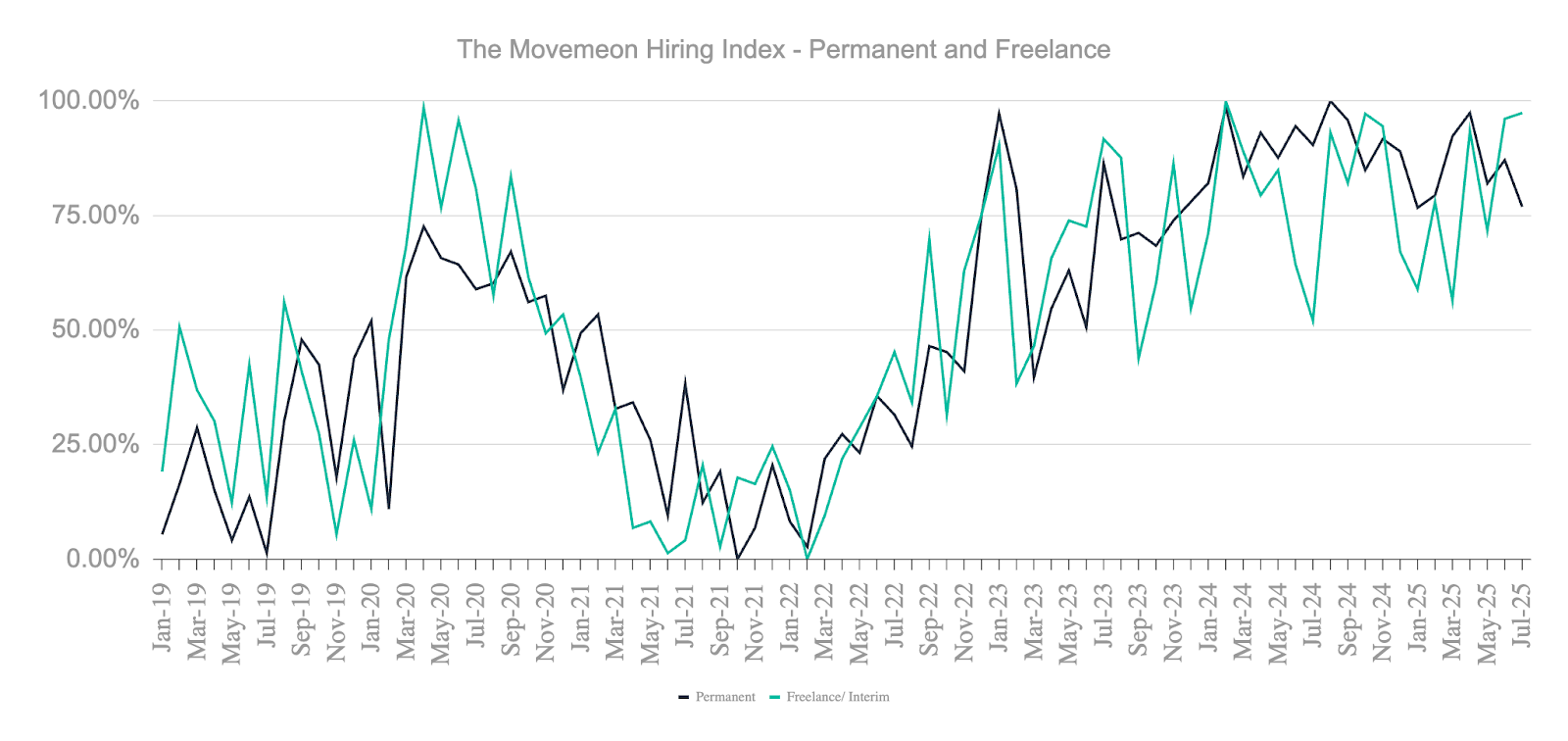



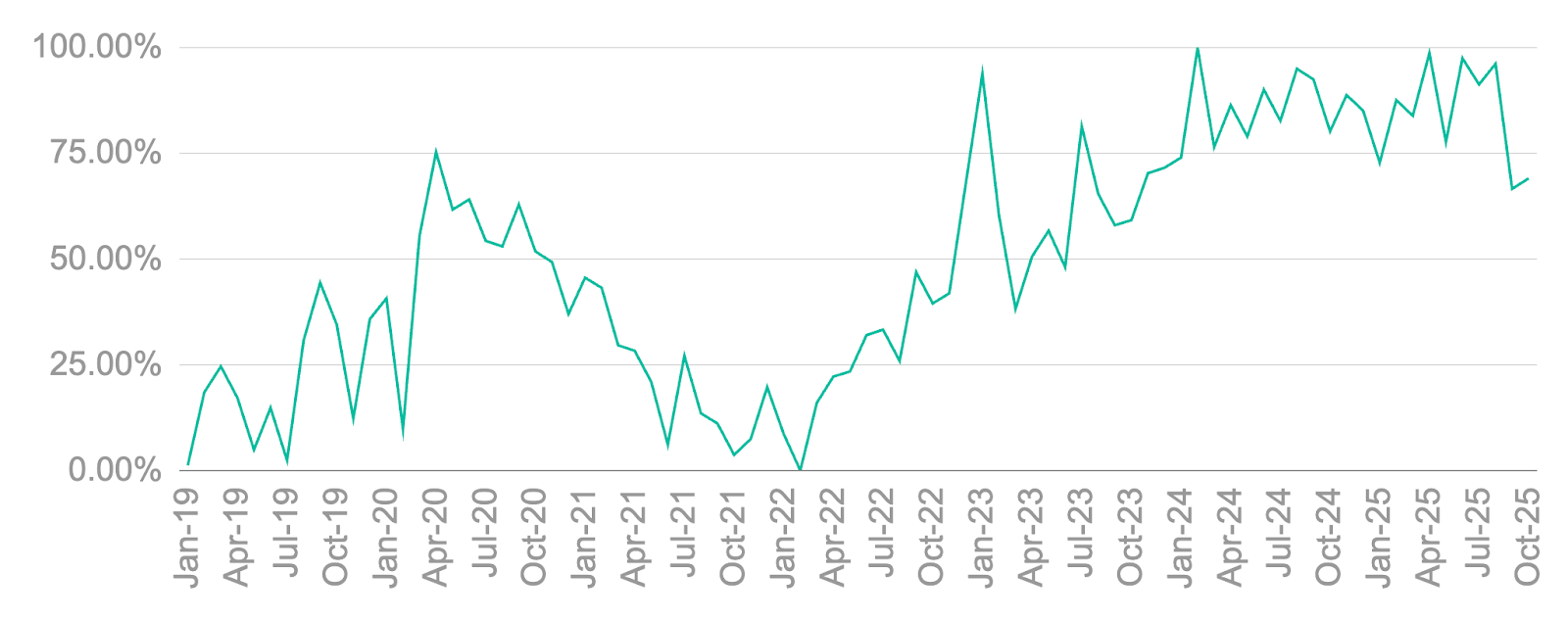
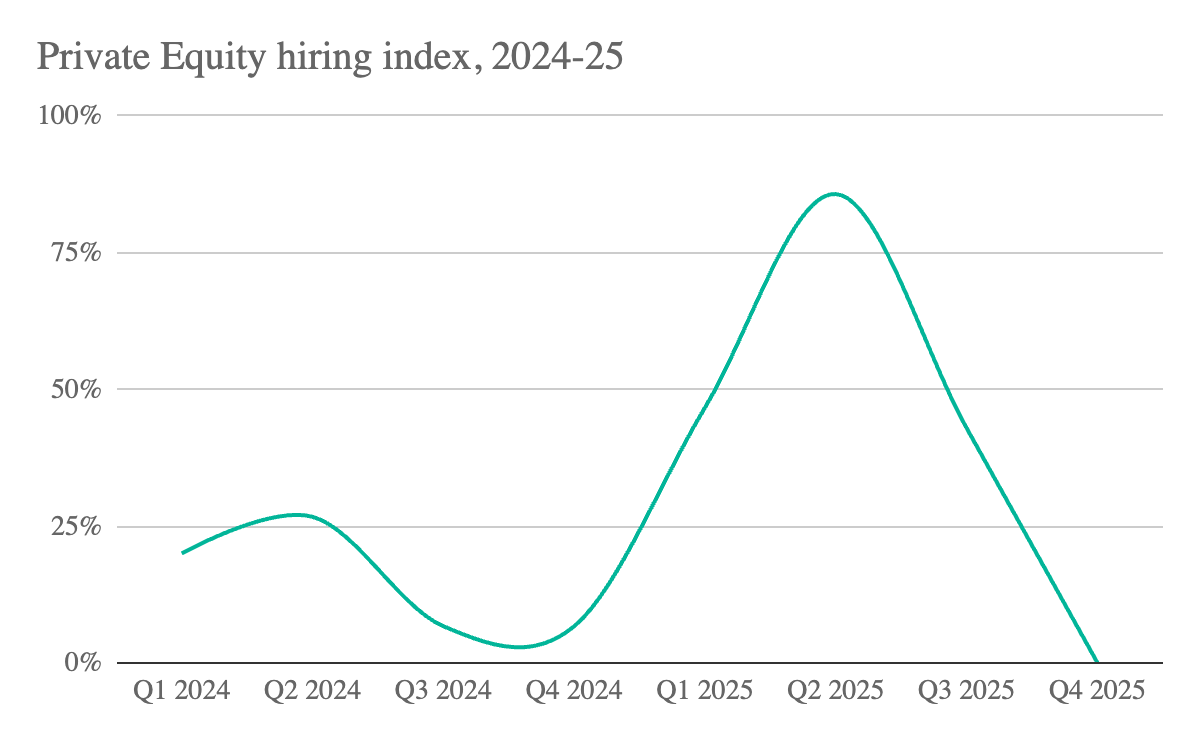
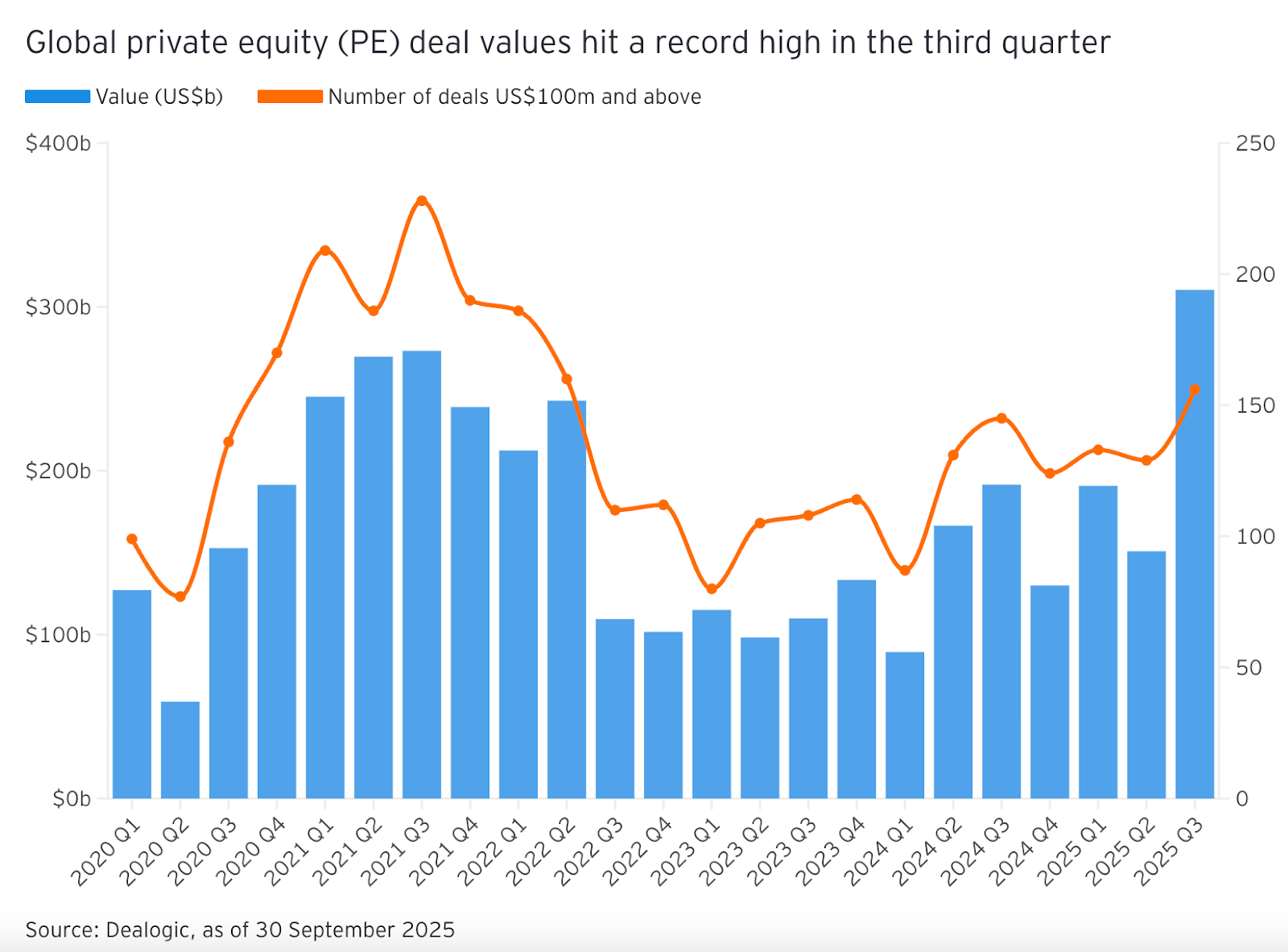
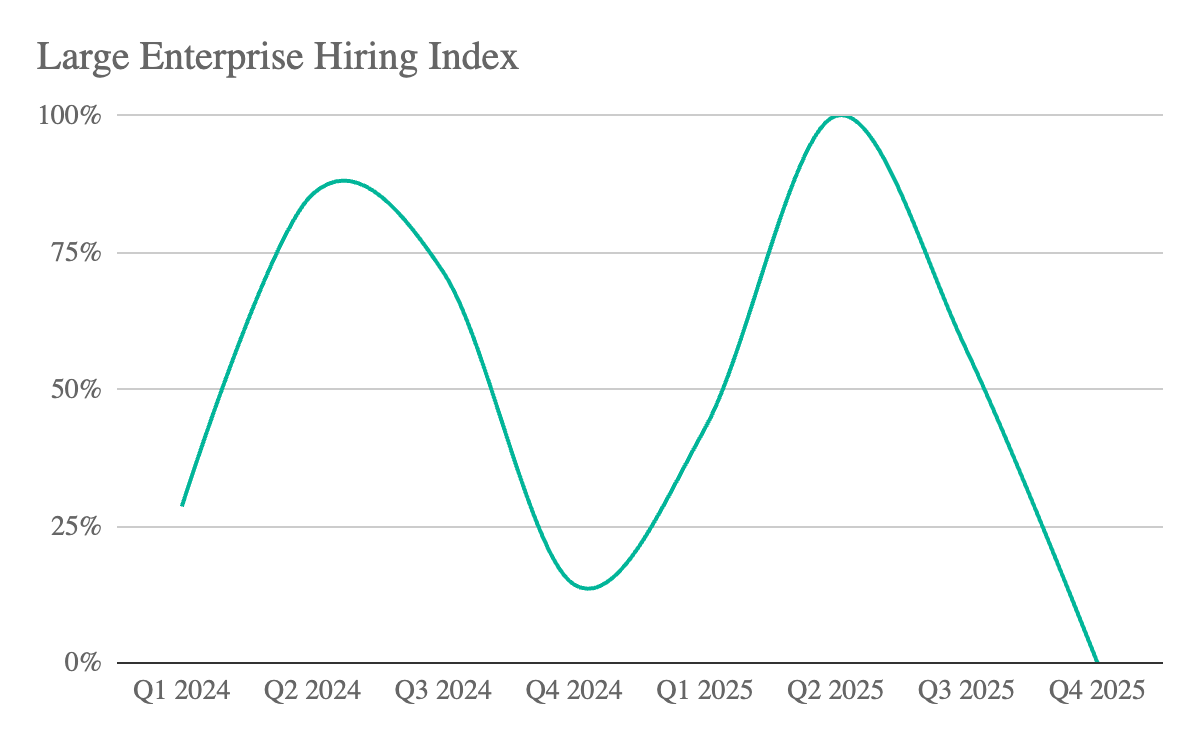
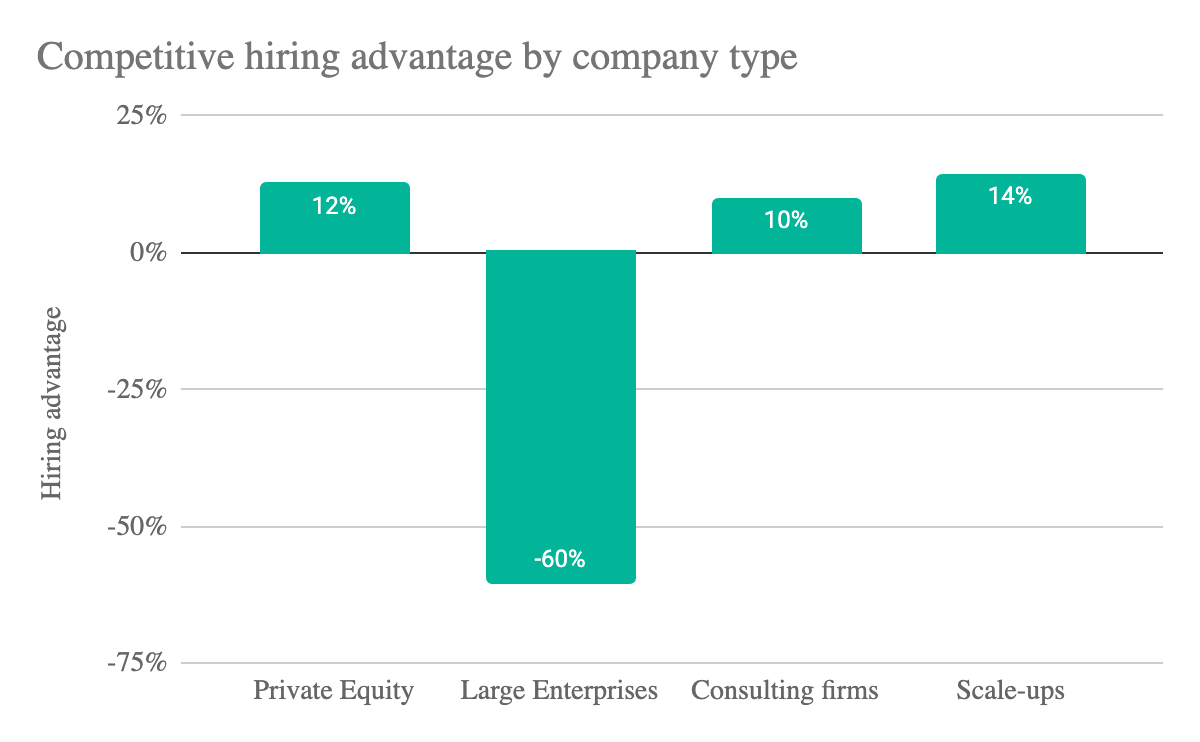
.jpg)

.png)
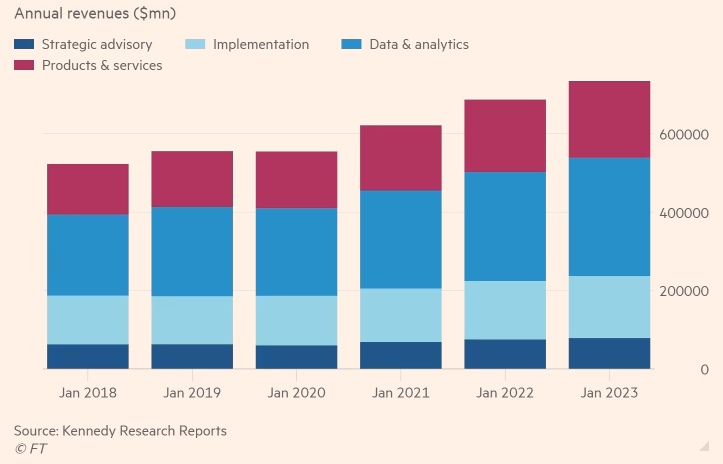
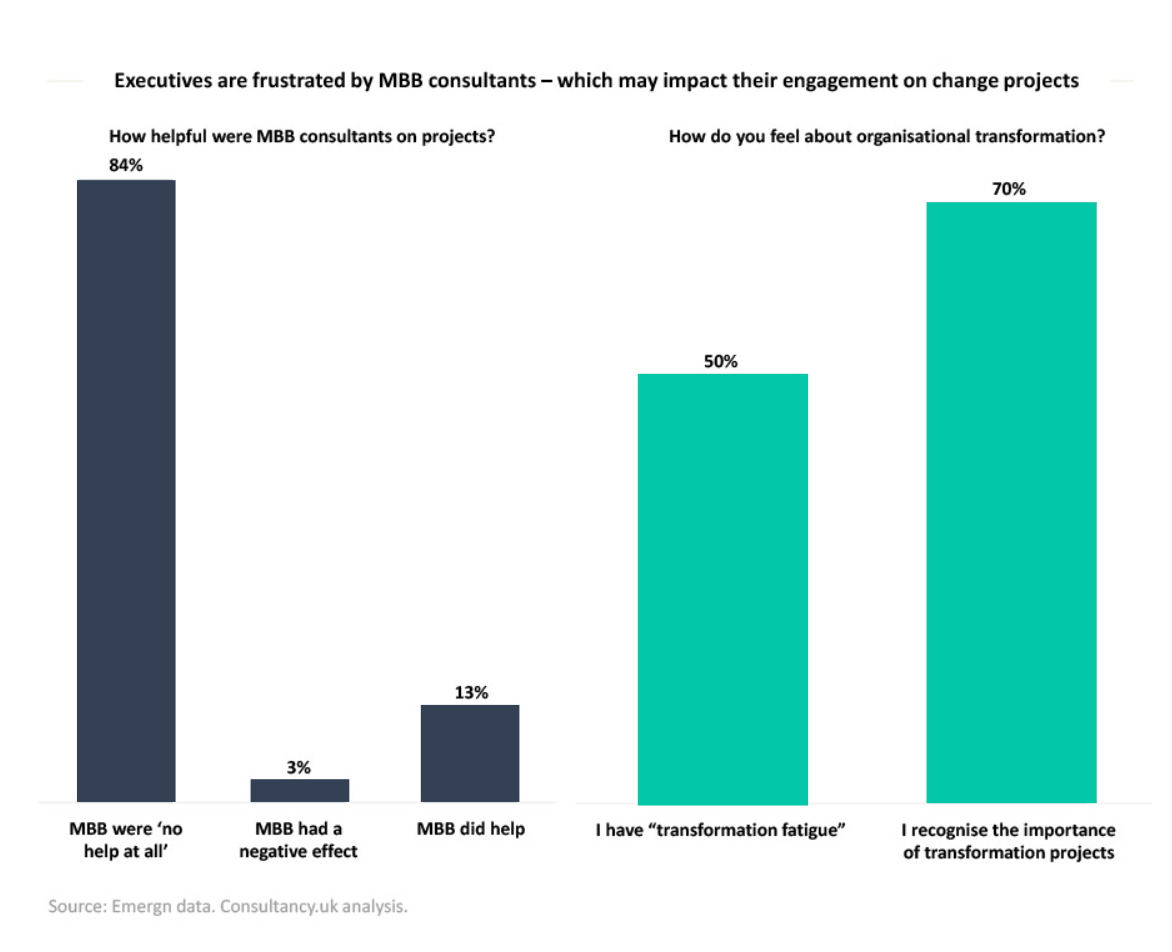
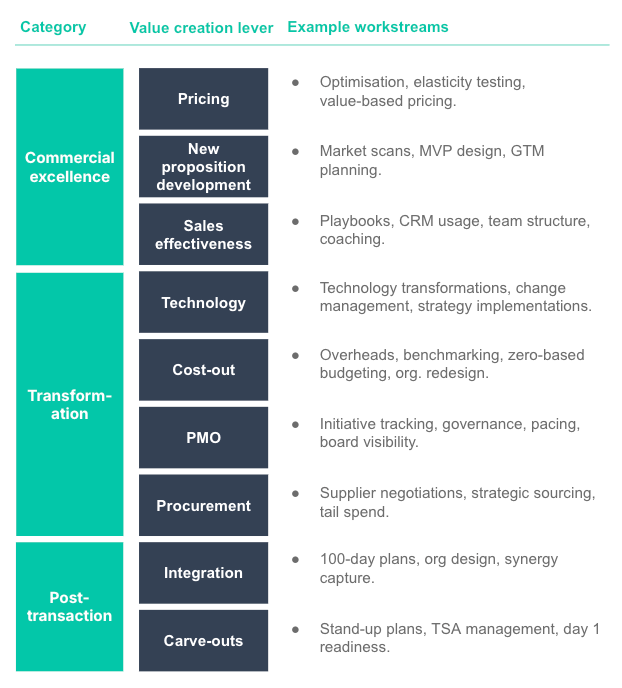

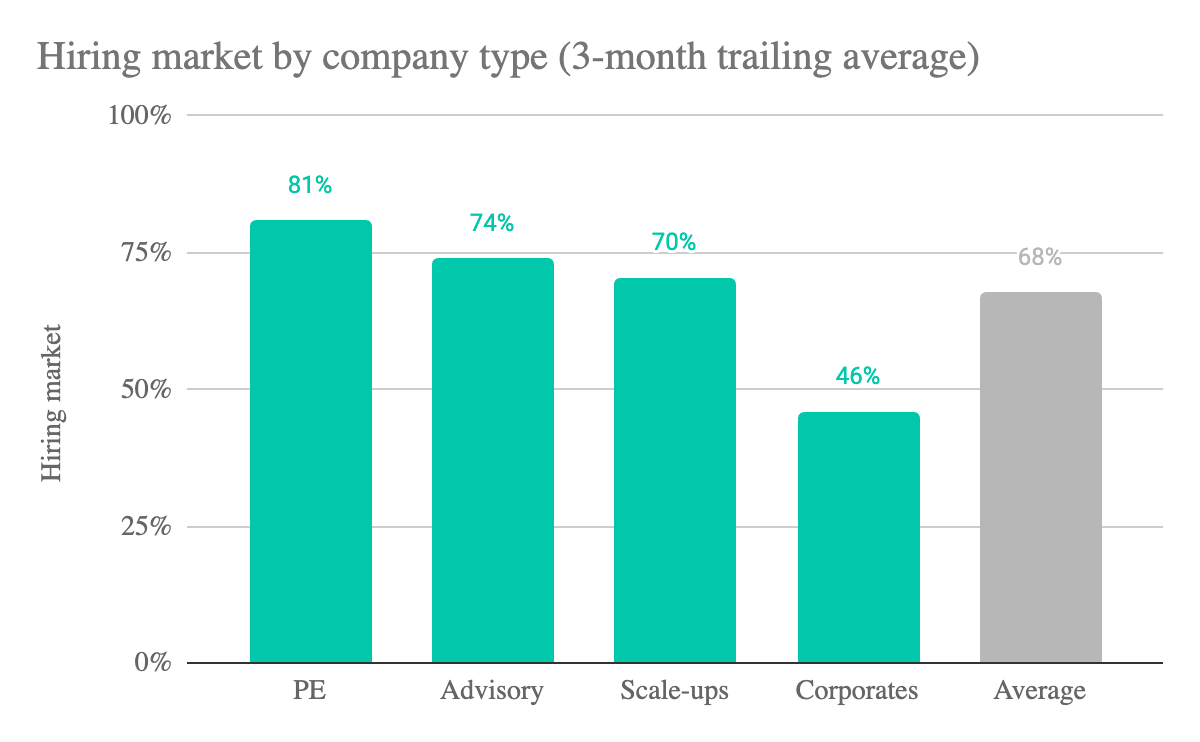
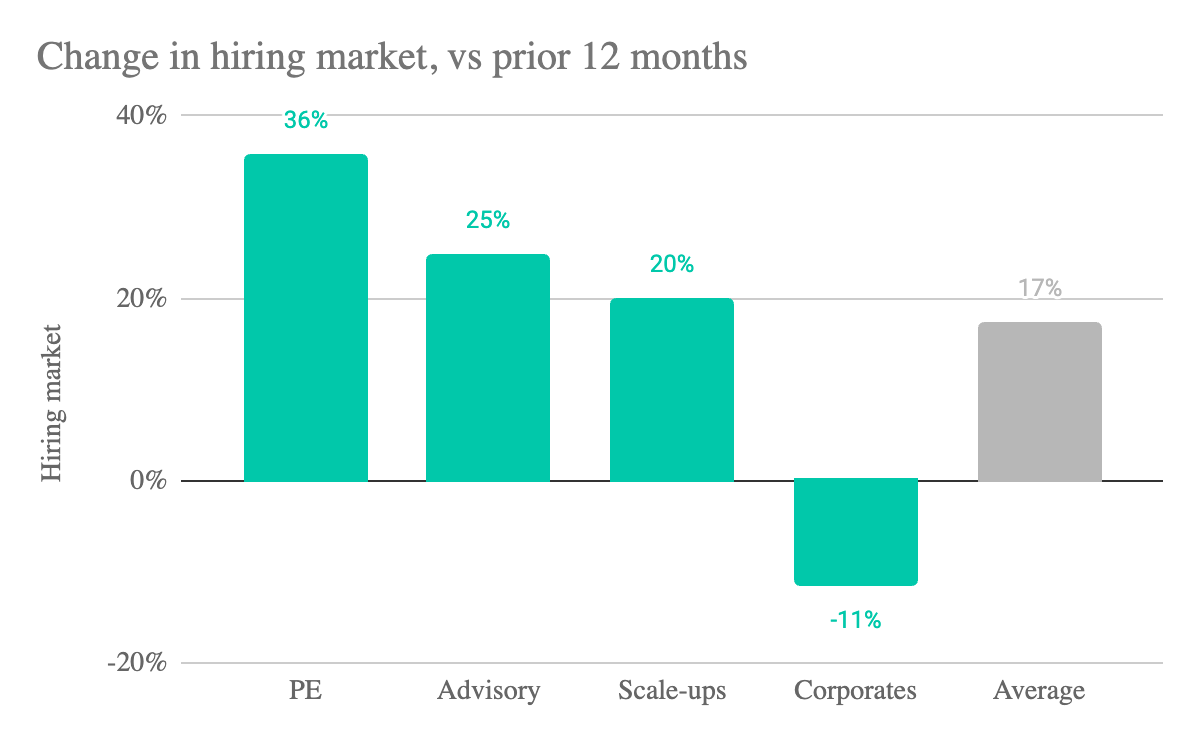


.jpg)
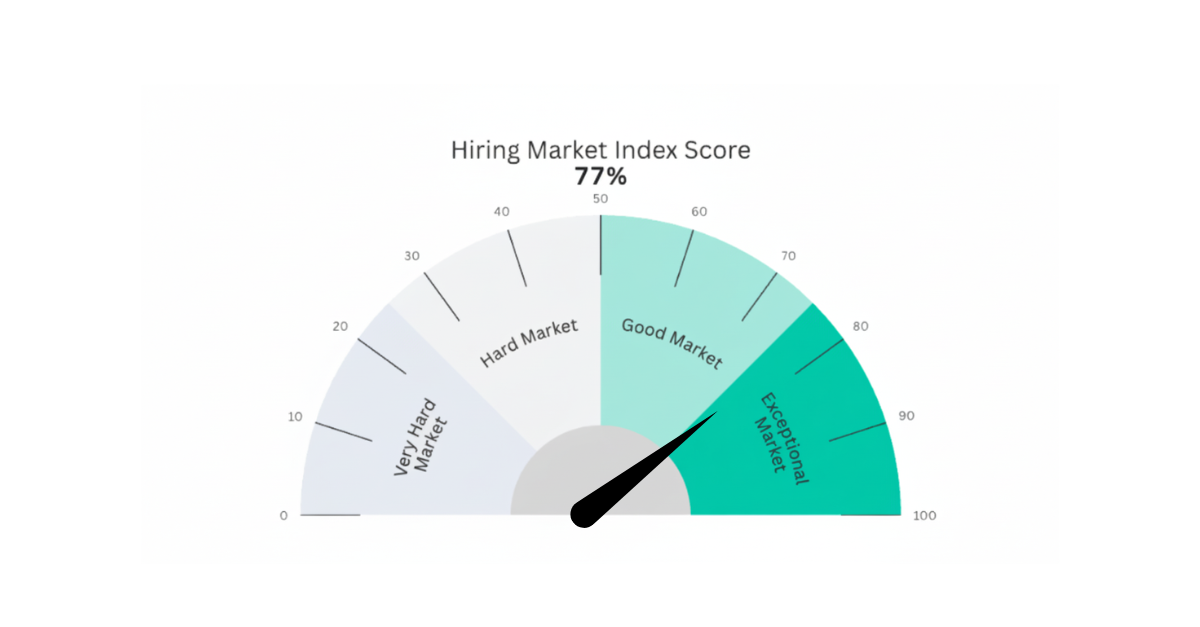
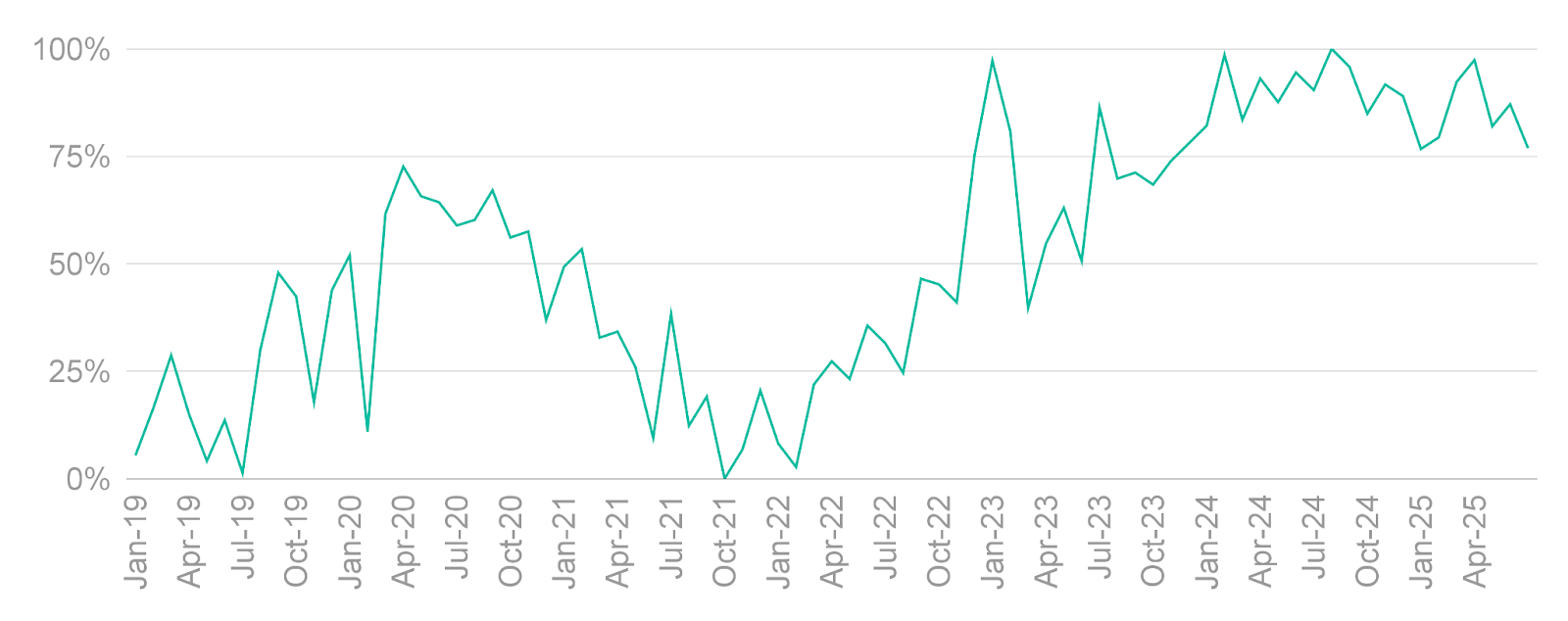
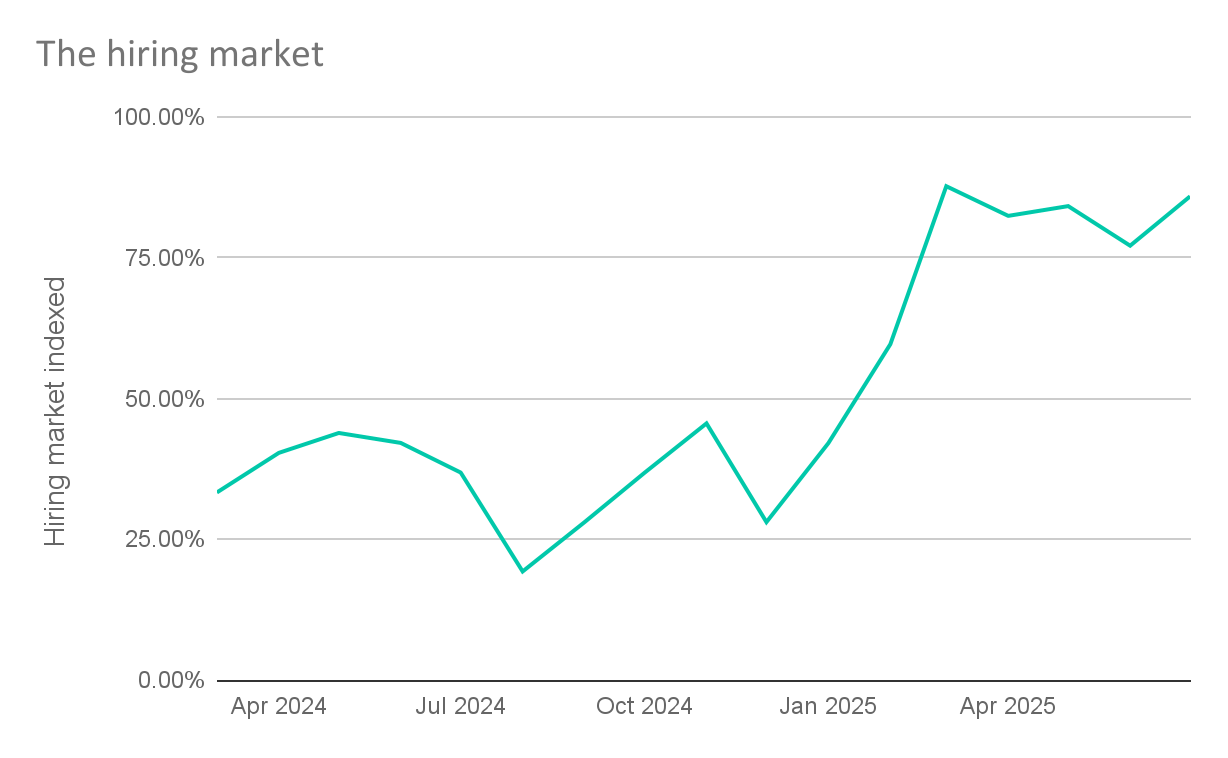



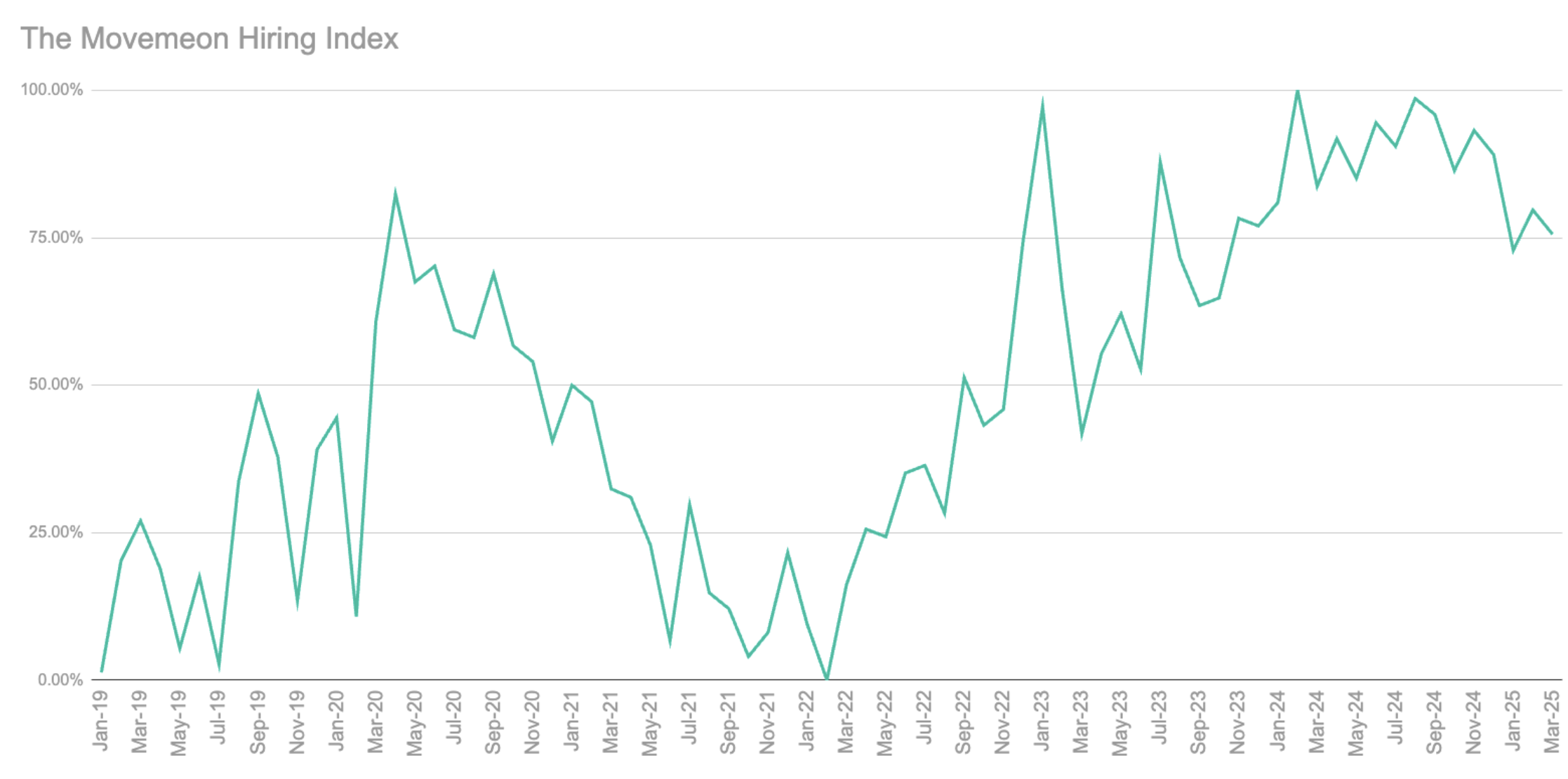



















.jpg)

